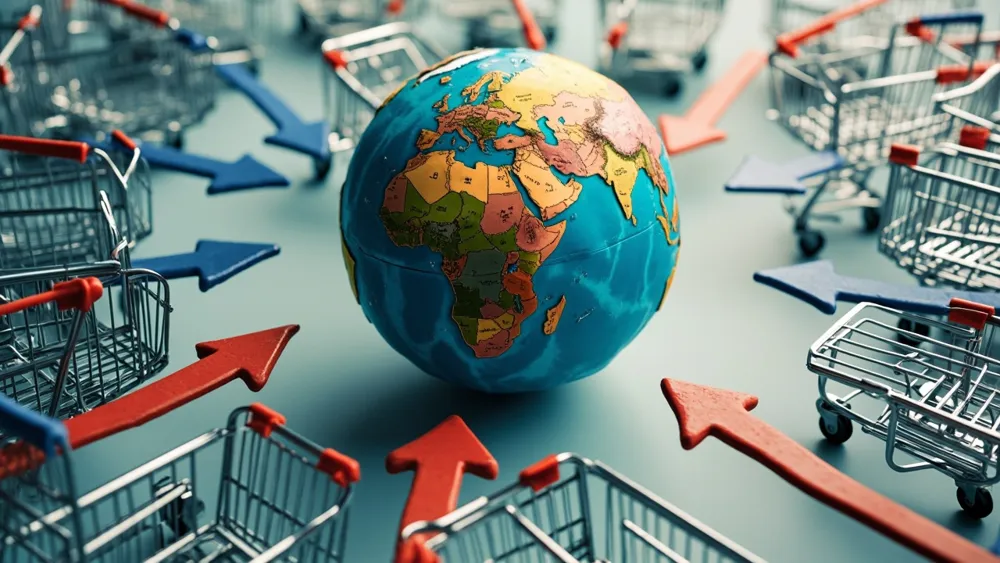Yiwu's Global Buying Spree Mirrors Trends in China's Trade

Yiwu, commonly recognized as the barometer of China's foreign trade, is leveraging a new initiative to enhance its import capabilities. This move aligns with the country's broader strategy of fostering openness and boosting imports, especially in the face of rising global trade protectionism. Yiwu's expanding demand for imports not only reflects the evolving dynamics of China's foreign trade but also highlights the city's proactive measures to counteract global trade restrictions.
In December of the previous year, Yiwu launched its import trade innovation pilot program. This initiative marks the city's first effort in reform following the State Council's endorsement of a comprehensive plan to advance international trade reforms within the city. According to a report by CCTV News, the program underscores Yiwu's commitment to strengthening its trade links.
The pilot program selects products from a designated list tailored for cross-border e-commerce retail imports, prioritizing those in high demand among consumers. The initial selection features 35 types of goods across key categories such as children’s toys, daily necessities, and household appliances. Once imported, these products are available for wholesale at the Yiwu China Imported Commodities Mall, where they can also be retailed.
This initiative is one facet of Yiwu's broader goal to revitalize its trade ecosystem. By bolstering imports alongside exports, the city seeks to harness its established strengths in trade logistics and e-commerce. Consequently, Yiwu is positioning itself not only as a global seller but also as a global buyer, aiming for a more balanced role within the international trade landscape.
During a press conference in December 2024, Yiwu set ambitious targets for its international trade sector, aspiring to achieve an import trade value of 100 billion yuan this year, with plans to exceed 300 billion yuan by 2030, as reported by people.com.
These strategies are projected to elevate Yiwu's imports from diverse countries and regions, subsequently stimulating exports and generating economic incentives. One noteworthy example is the Yixin'ou (Yiwu-Xinjiang-Europe) China-Europe Railway Express, which has served as a crucial cargo transport corridor since its inception in 2014, facilitating the influx of goods from Europe into the Yiwu market.
Customs and other related departments have rolled out various supportive measures to accelerate import growth via the Yixin'ou China-Europe Railway Express. In the initial four months of 2025, the railway facilitated 462 return trains with a total shipment of 38,100 standard containers, marking a significant year-on-year increase of 25.6 percent, as reported by Zhengjiang Daily.
The ongoing expansion of the domestic market alongside consumption upgrades has led to increased demand for raw materials, agricultural products, electromechanical goods, and consumer items from Europe, further propelling Yiwu's import growth.
Yiwu is often viewed as a microcosm of China's efforts to enhance import capacity. For 16 consecutive years, China has held the status of being the world's second-largest import market, showcasing the immense possibilities presented by its vast market and the resolve to further open its economy.
He Yadong, a spokesperson for the Ministry of Commerce, has emphasized that the proactive expansion of imports represents China’s responsibility as a major nation, contributing significantly to the development of the global economy.
China's commitment to expanding imports not only diversifies the domestic market and stimulates consumption but also contributes to stabilizing global trade through persistent demand. This strategy sharply contrasts with the trade protectionist measures seen in some other nations and serves as a stabilizing force for businesses globally, especially amidst economic uncertainty.
Read These Next

Brent Crude Oil Jumps 5% in a Single Day Surge
Brent crude oil rose 5% to $70.28 per barrel, driven by strong demand and economic recovery; investors should monitor trends.

Tariffs Impact Fashion Giant's Q1 Performance Slowdown
Inditex missed Q1 sales expectations due to tariffs, inflation concerns, and a US economic slowdown affecting shopping trends.

Morgans Financial Upgrades Australian Airlines to Holding Rating
Morgans Financial upgraded Australian Airlines' rating to "holdings," signaling increased market confidence in its recovery.
